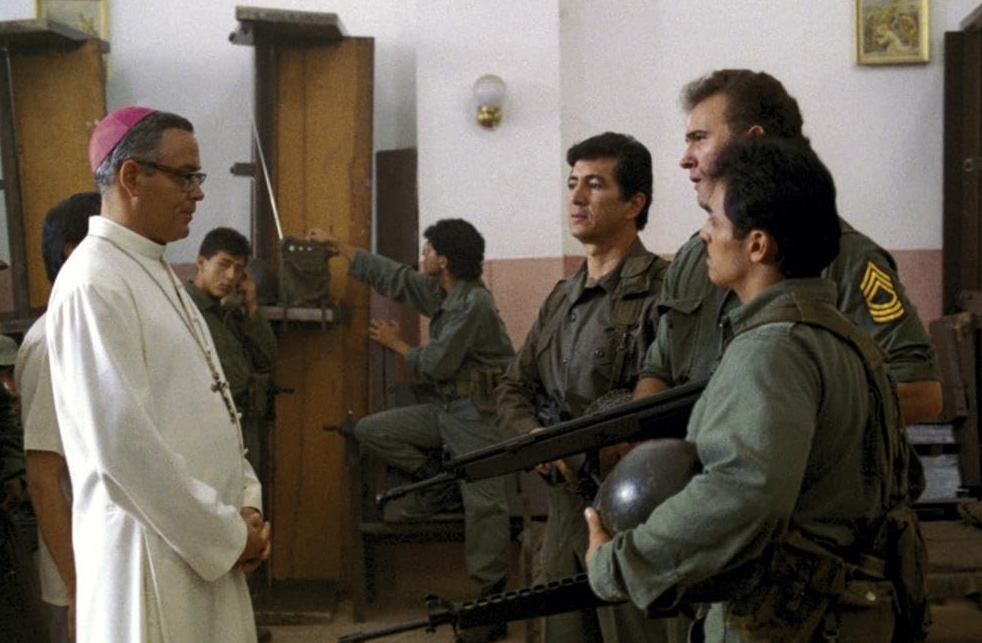The Historical Scenario
The film “Romero,” directed by John Doe, immerses us in a moving account of Archbishop Oscar Romero, portraying not only his struggle against the military governments of El Salvador in the late 1970s, but also the evolution of his character from a conservative priest to a resounding voice against injustice.
From Conservative Priest to Justice Advocate
The plot centers on the last three years of Archbishop Romero’s life, where the assassination of the protagonist brings a dramatic end to a story steeped in pain, death and injustice. However, this is not only a film about tragedy and martyrdom, but also about courage, faith and transformation.
Raúl Julia: The Incarnation of Romero
Romero is masterfully played by Raul Julia, who presents us with a man initially seen by the government and the church as a potential political pawn. However, as the plot progresses, the viewer witnesses the radicalization of Romero, who, motivated by his faith and the atrocities he witnesses, becomes an implacable critic of the Salvadoran government. A government that, as highlighted in the film, becomes a reflection of economic exploiters, denying basic freedoms to its citizens.
Confronting Barbarism with Faith
A particularly shocking episode in the film is a confrontation in a church, where soldiers shoot directly at the altar, destroying the tabernacle and spilling the Eucharist to the ground. This scene, which could symbolize the ultimate affront to the Catholic faith, is also a testament to Romero’s courage and determination. Despite the violence unleashed, he collects the Eucharistic hosts for his parishioners, demonstrating unwavering spiritual fortitude in the face of barbarism.
Romero: The Man Behind the Theology
This film, produced by an agency of the Paulist Fathers, and partially financed by Catholics, focuses more on the religious aspect of Romero than on the political. Although it does not directly address “liberation theology,” the message is clear: Romero’s struggle was not politically motivated, but based on fundamental Christian principles.
Conclusion:
Archbishop Oscar Romero was not simply a critic of the government, he was a spiritual leader who, guided by his faith and conscience, stood up for the oppressed. His story, though predictable in its tragic nature, leaves us with a teaching about transformation, courage and unwavering faith in times of oppression. It is, in short, a tale of sadness, but also of inspiration and courage in defending the teachings of Christ.







